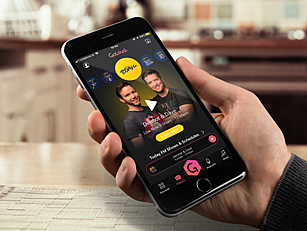Story
Over €257m will be spent online in the run up to Christmas, with the bulk of it on December 1 - 'Cyber Monday'.
Visa will handle 7,000 transactions, every minute, across the EU, as more people than ever are choosing to do their shopping from the comfort of their sofa, rather than braving the elements and crowds in busy department stores.
However, consumer experts have warned to always make sure and check the small print for shipping charges, insurance and taxes.
It can be cheaper - but remember there are dangers attached to buying in cyber space, not to mention ensuring delivery is on time.
To ensure you have a happy and cyber-safe Christmas, here are some of the tips from the experts:
- Install good anti-virus software to ensure you don't get spammed.
- lOnly shop on well-known, validated sites. These will have a street address, customer services landline number to call, and when you go to pay, the address line in your browser bar will change to a padlock symbol and 'https' will appear - the 's' is for secure.
- Keep a print-out of receipts and all the order confirmation numbers.
- Just because a website has a .ie address doesn't mean it's Irish. Check further to make sure it's not a fake site shipping from Asia. The European Consumer Centre (www.eccireland.ie) has a good tool to check for dodgy websites, called the Howard Assist Tool. Put in the site's address and it will confirm if it's real or not.
- If you buy from an auction site, like eBay, you are not covered under EU consumer legislation. Always use PayPal or similar to make payments.
- You must pay VAT on goods, irrespective of the country of purchase. This should be clearly detailed on all EU websites. From outside the EU there may be additional excise charges (the first €150 is exempt), along with countervailing duty (mainly for products from China).
- Don't get caught by a fake website. If the price seems too good to be true or the site has poor English translations, avoid. If the seller is vague about the product's origins, or cannot explain price differences, don't buy.
- Consumer experts urge anyone who doesn't receive their goods to contact the trader directly.
- Then, if that does not work, the National Consumer Agency will step in for Irish retailers and the European Consumer Centre for EU traders.














